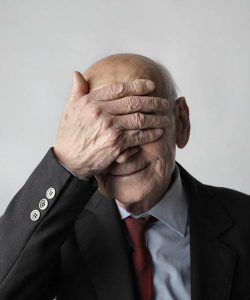Table of Contents
Auditory Hallucinations and Seniors. How to treat?
A hallucination is a perception in the absence of an external stimulus, which has the quality of real perception. Hallucinations can occur at all levels of the senses: auditory, visual, tactile, and even olfactory.
Auditory hallucinations The Basics
The most common type of hallucination is when a person “hears voices”. These are the so-called auditory hallucinations.
They are common in psychiatric illnesses such as schizophrenia. Hallucinations at the level of vision also arise in connection with pathologies.
Although they are less common in schizophrenia, visual hallucinations are often associated with neurological impairment and dementia.
Why Auditory Hallucinations may occur?
Although auditory hallucinations are usually associated with psychiatric conditions such as bipolar disorder, they are not always associated with illness.
In some cases, the hallucinations can be caused by lack of sleep. Some stimulants can also cause sensory disturbances in some people.

The reasons are disturbances in the functioning of the brain.
Below we list the most common diseases and conditions in which auditory hallucinations can develop:
- Organic mental disorders consequences of oxygen starvation of our nervous system, trauma, strokes and heart attacks, vascular diseases of the brain.
- Epilepsy
- Alcoholism. Hallucinations develop against the background of vascular diseases of the brain, age-related changes in the psyche.May be associated with persistent alcohol use. With alcohol dependence, hallucinosis is treatable.
To do this, perform coding for alcoholism, exclude the use of alcohol. When the withdrawal syndrome passes, and the state of mind and health returns to normal, the hallucinations disappear - The consequences of poisoning and infections of the nervous system
- Endogenous diseases schizophrenia, schizotypal disorder, schizoaffective disorder, psychosis.
- Neurological diseases neoplasms in the brain tissue, autoimmune and atrophic diseases of the nervous system…
Hallucinations can appear due to severe pain syndrome, a sharp deterioration in well-being, which is caused by oncology, tuberculosis, and other serious conditions. - Overwork, lack of sleep, starvation, deficiency of substances necessary for the nervous system in the diet.
Auditory Hallucinations and Seniors. How to treat?
Hallucinations in the elderly are a delicate problem. It is difficult for loved ones who have encountered this for the first time to react correctly and find a professional approach and a high-quality treatment of hallucinations in the elderly.
However, a timely visit to a doctor and correct diagnosis in combination with modern supplements can significantly alleviate the patient’s condition.
It has been experimentally proven that sensory deprivation can also cause hallucinations.
In the 1960s, there were experiments (which would not be done now for ethical reasons) in which people were kept in dark rooms without sound or sensory stimuli.
As a result, people began to see and hear different things. So hallucinations can occur in both healthy people and mentally ill people.
Research on hallucinations has been going on for quite some time. Psychiatrists and psychologists have been trying to understand the causes and phenomenology of auditory hallucinations for about a hundred years, even longer.
For the past thirty years, we can use neuroimaging to try to understand what happens in the brain when people experience auditory hallucinations.
Seniors’ Auditory Hallucinations Types and its Treatment
The treatment of hallucinations in old age is fraught with difficulties due to the wide range of types of hallucinations. Today in psychiatry, the following types are distinguished:
- Tactile
- Vestibular
- Olfactory
- Visual
- Flavoring
- Auditory
In some cases, in seniors, hallucinations occur spontaneously. In such cases, only one action is advisable – an immediate call for an ambulance.
This could be a symptom of a sudden onset of mental illness or a stroke. In both cases, urgent medical assistance is needed, and in the latter, the patient’s life also depends on the promptness of the assistance provided.
It also happens that most of the time a person behaves calmly and quite adequately. But sometimes you can see that he suffers from hallucinations.
Treatment of auditory hallucinations in the elderly should be carried out very delicately, because often the patient hears voices that tell him to act in one way or another.
Unfortunately, this type of hallucination is the most common. Never use folk remedies or advice from the Internet for treatment – this will only harm the patient.
The treatment of sound hallucinations in the elderly is the exclusive prerogative of qualified doctors. With this diagnosis, sedatives of the latest generation, tranquilizers are used, in some cases, the body is cleansed of substances that cause hallucinations, and inpatient treatment is prescribed.

Treatment of visual hallucinations in the elderly follows a similar scenario. This is the second most common type of disease.
To relieve the condition, the same supplement and techniques are used as for auditory hallucinations.
What cannot be done categorically?
- Scold the patient, call him names, make him angry
- Try to sedate before seeing a doctor and getting tested
- Openly tell a person that he is mentally ill
Home treatment Of Auditory Hallucinations
Trying to get rid of hallucinations on your own is useless. It is difficult to defeat the disease without a thorough examination and taking proper medications.
Close people at this moment need to surround the patient with care and attention. Deficit of communication can serve the development of a pathological syndrome.
Auditory hallucinations Final Words
There is no specific therapy aimed at eliminating the “voices in the head”. The course of treatment is always aimed at stopping the primary disease.
As a rule, elderly patients with mental disorders should be treated in a hospital setting. The therapeutic course is compiled individually, depending on the characteristics of the development of pathology.
